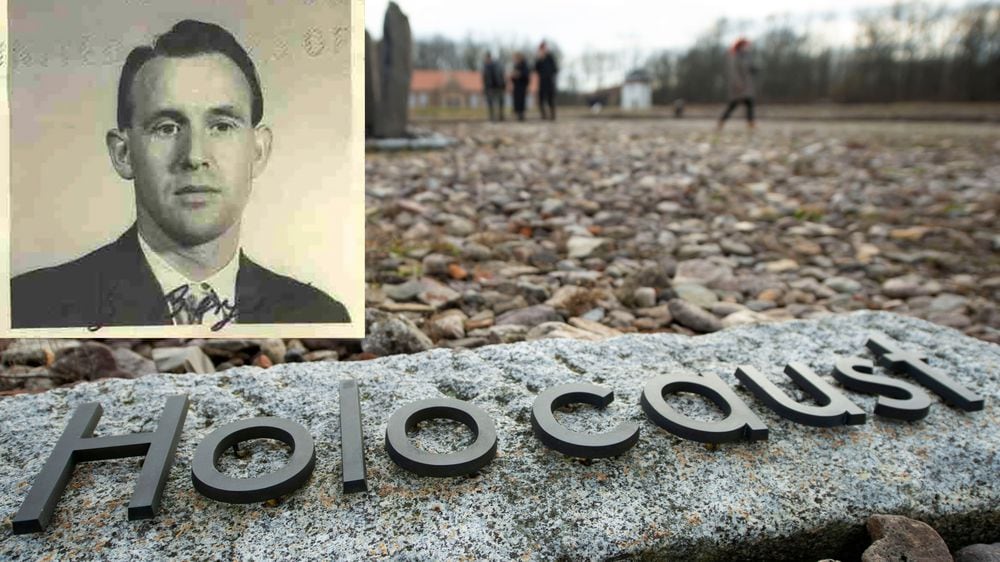

Friedrich Karl Berger came to the United States in 1959 as one of those millions of European immigrants who sought their lives in this rich part of the world at the time. At the end of World War II, he first landed in Canada, hailing from Germany, but then settled in Oak Ridge, a small town in Tennessee. There he created a home with his wife and daughter, worked on the manufacture of wire stripping machines, and became another member of that prototypical suburban American community. There he retired and widowed, there he became a grandfather and there, the cycle of every current biography concluded, Friedrich Karl Berger was destined to die. But last Saturday, at the age of 95, the judiciary deported him to his country of origin for serving as a Nazi guard in the Neuengamme concentration camp, near Hamburg.
Only the deaths of the perpetrators, the inexorable passing of the years, will end the hunt in the United States for the criminals of the Jewish Holocaust. In 1979, the Department of Justice launched a special program to locate, investigate and deport anyone who participated in the atrocities of World War II, and it has since won cases against 109 people. According to his records, he has hunted more Nazis in the last 30 years than in the rest of the countries combined. He never gave up on finding every last man in his territory. With Berger last Saturday, there are already 70 deportees and, due to data and the lack of comparable ongoing cases, it could be one of the last, if not the end.
This Tennessee neighbor’s filthy past came to light from documentation found on a German ship sunk by the Allies and discovered in 1950, five years after the attack. The material was researched by US Department of Justice historians, and over the years they found Berger. He admitted in court in February 2020 that he had served in an outer camp in Neuengamme, near the German city of Meppen, where mostly Russian, Dutch and Polish prisoners lived. The prisoners lived in “appalling” conditions, according to the judge, and were exploited during the winter of 1945 while working abroad, “to the point of exhaustion and death.” In late March, as British and Canadian forces were gaining ground, the Nazis left the compound. It is then that the German citizen played a particularly harmful role.
Berger was in charge of guarding the forced evacuation of the inmates during a two-week ‘inhumane’ journey that claimed 70 lives, according to the verdict. Hundreds of other prisoners later died and were held in two boats anchored in the Bay of Lübeck in the Baltic Sea, which the British accidentally bombed. Berger’s information appeared beneath the remains. The Tennessee immigration judge issued the deportation order on Feb. 28, after a two-day trial. Residents of Oak Ridge were stunned, and he started a legal battle to avoid eviction that ended last November when the warrant was upheld.
The non-Dutch arrived in Frankfurt last Saturday and, according to him, was handed over to detectives for questioning Associated Press, although German courts had long ago dismissed the charges against him due to lack of evidence, said The Washington Post, a decision that could be reversed after the US prosecution. Speaking to that newspaper last March, Berger claimed that he was only 19 years old when the events took place and was forced to work in the concentration camp. “After 75 years this is ridiculous, I can’t believe it,” he complained in that interview, his only public statements.
However, at the trial he had also admitted that he had never requested a transfer from that location and that at the time he was still taking a pension from Germany for his work in the country, including “his wartime service”. .
Berger was deported on the basis of a 1978 amendment known as the Holtzman Amendment to the Immigration and Nationality Act, which prohibits accomplices in Nazi persecution from entering or living in the United States. “In this year, marking the 75th anniversary of the Nuremberg convictions, the case shows that the passage of the decades will not stop the ministry from seeking justice on behalf of the victims of Nazi crimes,” the acting attorney said. General, Monty Wilkinson.
register here to newsletter from EL PAÍS América and receive all the informative keys of the regional news